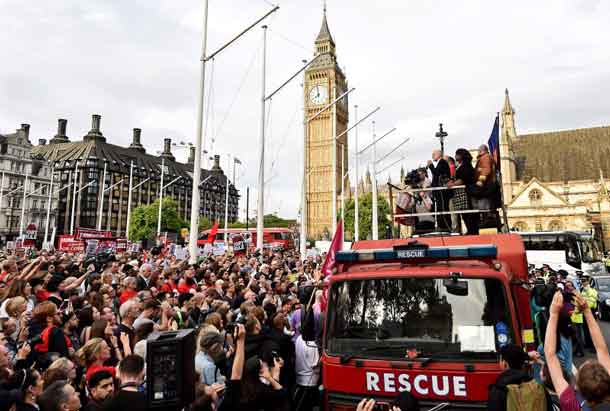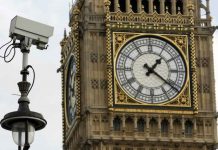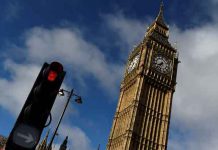

LONDON, UK – Having been in the UK for the last 10 days of the Brexit campaign, the victory of the Brexiteers over the Remainians was expected. The debate pitched economics against politics. Maybe, as British journalist David Smith wrote in The Times, “The economics and business case for remaining in the EU is conclusive,” but politics nearly always trumps business.
The Remainers promised that a Brexit would entail deep cuts in living standards. “Don’t risk it. Don’t risk your job. Don’t risk out standard of living. Don’t risk our future.” That, verbatim, was the message of Prime Minister David Cameron. As with the opposition to the Scottish independence referendum two years ago, it was “Project Fear” once again.
Mark Carney, lately Governor of the Bank of Canada and now of the Bank of England, warned that a Brexit meant “chaos.” The Chancellor of the Exchequer, George Osborne, promised if the Leavers won an emergency budget to raise taxes and cut funding for education and health care. His “punishment budget” was immediately repudiated by 65 Conservative MPs, including six former ministers. Carney was told to keep his civil servant’s mouth shut.
The Leavers promised a return to democracy. “Who governs Britain?” they asked. The options were: either the elected Parliament at Westminster or the 28 anonymous and unelected Commissioners on the EU Council.
The Brexiteers had another effective question: “Would you now vote to join the EU?” The obvious follow-up: “Then why vote to stay?” In short, the Leavers appealed for action, the Remainers for inertia.
But what of the consequences? In the short term one might expect market volatility because of an inevitable uncertainty when British citizens disobeyed their economic betters such as Carney. In the longer term it is not at all clear that Britain would be economically worse off outside the EU.
For example, tariff levels may be set at zero, but extensive regulation on standards, packaging, logistics, agricultural protection and so forth, along with import duties indicate that the EU is hardly a free-trade area. Indeed, once out of the EU, which will take at least two years, Britain could unilaterally liberalize its trade arrangements. This would create opportunities for wealth-creation for persons other than those who currently benefit from 40 years of regulation.
Notwithstanding the ado concerning immigrants during the campaign, the likelihood that Britain would reduce immigration is slight. The problem was that David Cameron had promised time and again to cut immigration and failed for the obvious reason that citizens of the EU by right can immigrate to Britain. Why he made such a promise when he knew full well he could not keep it was nearly as great a blunder as calling the referendum in the first place. In any case, Brexit rhetoric was not about stopping immigration but about controlling the borders so that Britain (like Canada) decided who was allowed into the country.
The main consequences are likely to be political rather than economic. Some European difficulties will not go away. These include the financial problems between north and south, a huge regulatory burden, the distrust of political elites by non-elites and the willful blindness of elites to the concerns of non-elites, the immigration pressure from the Middle East and Eurosceptic nationalism. That said, Britain now has greater flexibility in how it deals with those problems.
On the continent, Germany has lost an ally in free-trade policies directed against the more protectionist governments of France, Italy and Spain. France has lost an ally against German economic power. The end of British contributions to the EU budget mean that strains between north and south, particularly over wealth distribution and agricultural subsidies, will increase. The non-Eurozone countries of Eastern Europe lost a champion of national sovereignty. None of these things bodes well for EU harmony.
The Brexit made one thing perfectly clear: the British are still supporters of the nation-state and of their own national interest, which calls upon them to maintain a dispersed European balance-of-power. In contrast, the EU is devoted to overcoming the nation-state and to managing continent-wide prosperity from Brussels. The wonder may be that it took the Brits so long to leave.
Barry Cooper is Foreign Affairs, Defence, and Trade Policy Chair at the Frontier Centre.
© 2016 Distributed by Troy Media







